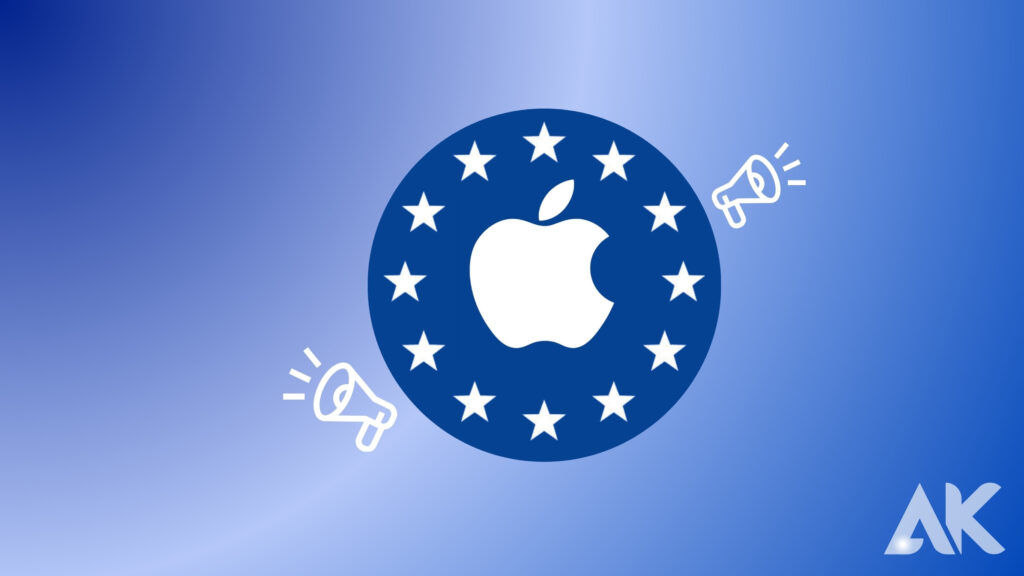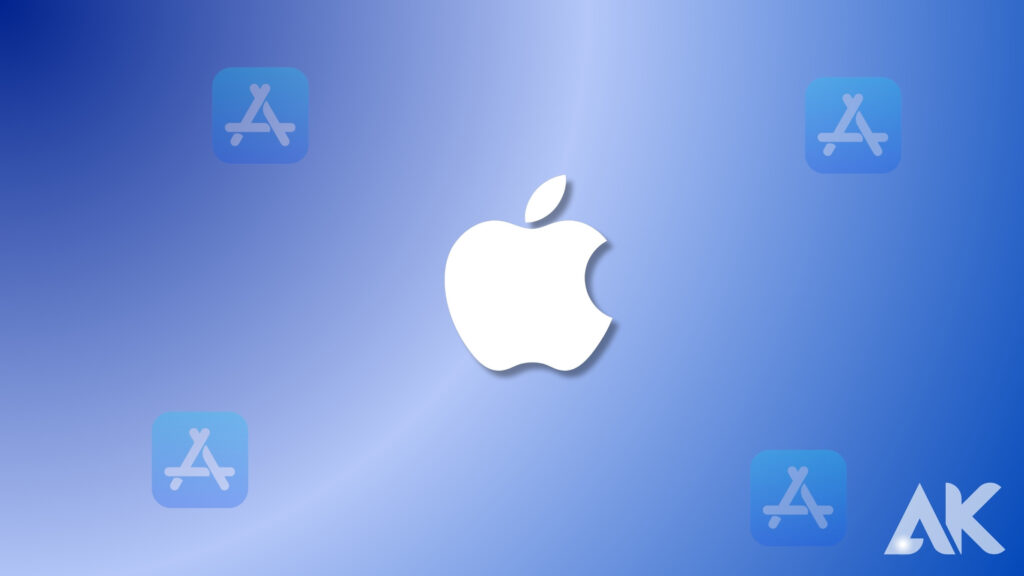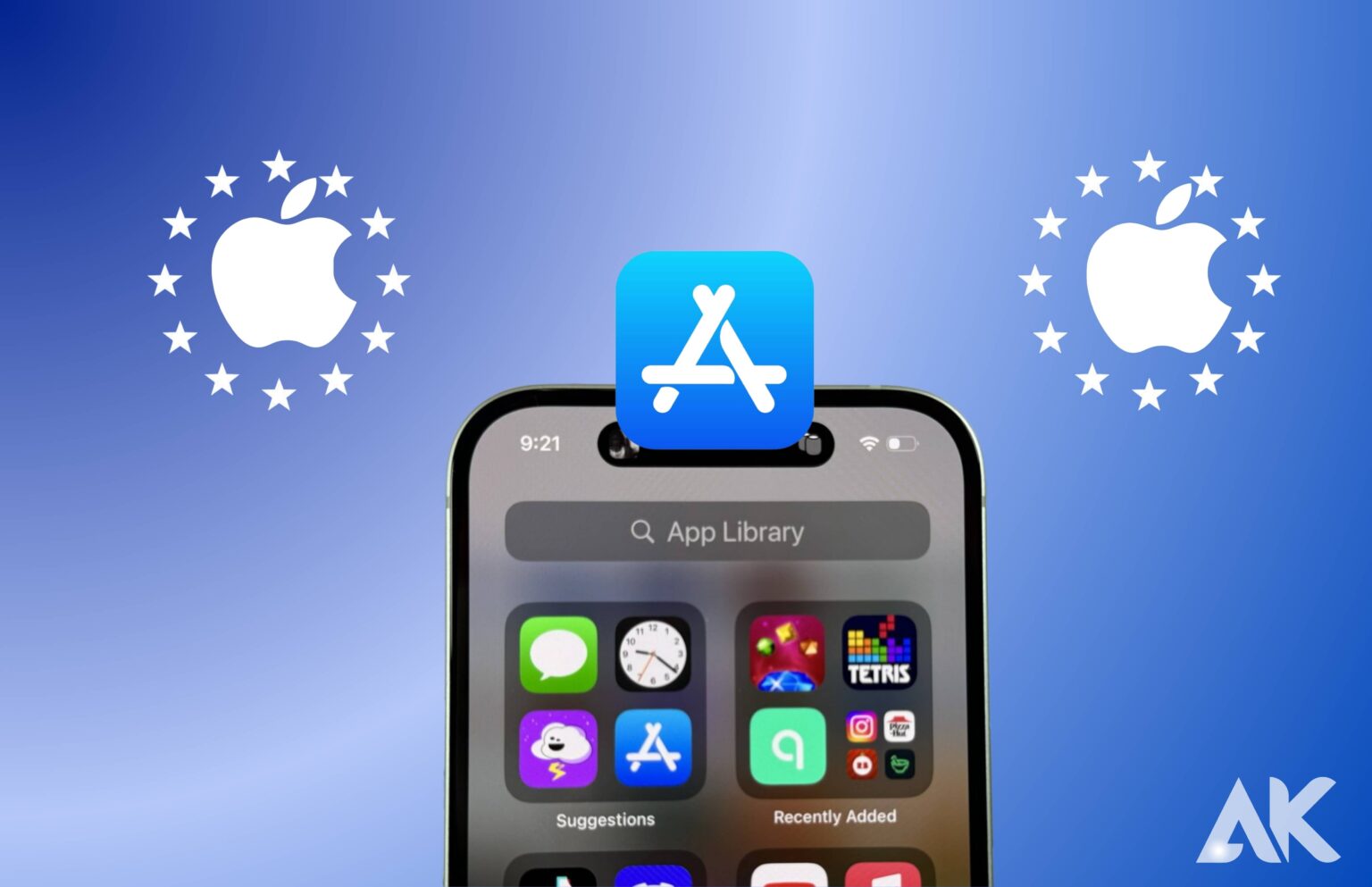Changes to Apple’s EU app store mark a watershed moment in the dynamic digital industry’s ever-changing landscape. Learn all about the finer points and how these changes will affect app developers and the ecosystem as a whole in this in-depth article. Let us explore the repercussions, beginning with app creation and ending with user engagement.
Apple Announces Sweeping EU

To meet the requirements of the Digital Markets Act in Europe, Apple announced on Thursday that it will open up new possibilities for app developers, including alternative app stores.
At the center of the story is the fact that, as of March 7, Europe’s new tech competition law would force Apple to relax its regulations that developers must use the App Store for distribution and payment processing.
In the long-standing defense of its App Store policies, Apple has emphasized the importance of user privacy and security. Additionally, the business claims its developer services are top-notch and guarantee spam- and malware-free customer experiences.
This is significant because it means that smaller companies are gaining ground on Apple as the tech giant is compelled to overhaul one of its primary “walled garden” platforms.
Last week, Spotify gave a sneak peek at the European version of their service after March 7.
Apple has assured developers that it has communicated with them about the upcoming changes and that it is fully compliant.
The source states that Apple has taken all necessary precautions to guarantee that iOS devices are secure and free of viruses, but the tech giant has no intentions to expand these possibilities outside of Europe due to the risks involved.
Apple thinks that after the DMA-imposed changes take effect, people will finally see the reasoning behind the company’s stringent developer regulations.
“Across every change, Apple is introducing new safeguards that reduce—but don’t eliminate—the new risks the DMA poses to EU users,” a release from the company stated.
While that is true, Apple is also implementing new pricing models to reward developers who make use of these new freedoms.
Particulars: Developers with apps that have surpassed 1 million downloads will be subject to a “core technology fee” of €.50 for “each first annual install per year,” starting with iOS 17.4. This fee will be counted only once per Apple account.
Any app, whether it leaves the App Store or moves to its marketplace, will be subject to that charge. According to Apple, the charge “reflects the many ways Apple creates value for developers’ businesses.”
Developers who opt to keep using the App Store will see a reduction in their fee from 30% to 17%. There will be a reduction from 15% to 10% in the discounted pricing for specific developers.
No commission will be charged to developers who want to distribute and facilitate in-app payments outside of the App Store. Apple has stated that nearly all developers will pay the same amount or even less in fees. Dive further: Notification of iOS apps, developer authorization for marketplaces, and disclosures on alternative payments are also part of the iOS upgrades. Apple claims in the press release that it “has less ability to address other risks” such as “scam, fraud, abuse” or “objectionable or harmful” content if applications choose not to use its system.
The European Union version of iOS 17.4 also includes a browser choice screen where users can set their default browser. In contrast, Epic Games CEO Tim Sweeney stated on X that Apple’s intention to undermine the new Digital Markets Act rule in Europe constitutes a cunning and malevolent act of compliance.
Epic fully opposes Apple’s manipulation of the app malware scanning and Apple notarization processes to stifle competition and keep taxing transactions in which Apple has no involvement. “Things to keep an eye on: The European Commission will decide if Apple’s approach properly complies with the DMA. Time will tell if the changes enhance competition and improve user experiences, but they certainly present iPhone app developers with a whole new set of options.
Apple Faces Strong Action

London, January 26 (Reuters) The head of the EU’s industry sector warned Apple on Friday that the tech company would suffer severe consequences if it did not update its App Store to comply with impending EU laws.
Software developers will soon be able to distribute their programs to Apple devices via alternate stores as the business moves to comply with the impending Digital Markets Act (DMA) of the European Union.
Starting in early March, developers can provide alternative app stores for iPhones and avoid paying up to 30% in commissions through Apple’s in-app payment mechanism.
On the other hand, others have voiced concerns that Apple’s cost structure is still unjust and that the revisions could violate the DMA, claiming that the changes fall short of what is needed.
According to Reuters, EU industry chief Thierry Breton made the unusual statement in response to a question about Apple’s intentions, “The DMA will open the gates of the internet to competition so that digital markets are fair and open.” Something is shifting. We will begin evaluating business proposals using third-party comments as of March 7.
According to him, “If the proposed solutions are not good enough, we will not hesitate to take strong action.”
To ensure their applications are free of cybersecurity threats and blatant fraud, developers will still be required to submit them to Apple for evaluation under Apple’s new EU regulation.
European Union residents who own Apple devices will soon have the option to change the default web browser and contactless payment app on their devices. This will allow them to bypass the Apple Pay system entirely when making contactless payments.
A “core technology fee” of fifty euros per user account per annum is due from developers regardless of whether they want to utilize Apple’s App Store or payment mechanism.
According to Apple’s announcement on Friday, developers are only subject to the core technology cost if they opt into the new business terms.
Apple has stated that it expects 99 percent of developers to either lower or keep their fees with Apple under the new business rules for EU apps.
Companies like Spotify and Meta, which have millions of free users, are more likely to be targeted than smaller firms. Neither firm could be reached for comment at the time of writing.
Conclusion
Apple has announced changes to its EU app store to comply with Europe’s Digital Markets Act, which requires developers to rely on the App Store for distribution and payment processing. The company has long resisted any changes to its App Store rules, citing security and privacy concerns. However, Apple is now allowing alternative app stores and other new options for app developers to comply with the law. As part of iOS 17.4, Apple will charge a “core technology fee” of €.50 for each first annual install per year for developers whose apps have achieved more than 1 million downloads.
The App Store commission will drop from 30% to 17%, and the discounted rate for certain developers will drop from 15% to 10%. Outside of the App Store, developers who wish to distribute and support in-app payments will not be charged a commission.
FAQS
What is the Apple 15% subscription?
App Store’s Small Business Programme
This scheme offers a 15% commission rate on premium apps and in-app purchases, allowing you to spend more resources on your business and continue to produce amazing apps.
How many registered Apple developers are there?
34 million registered Apple developers
Apple reports that 34 million registered Apple developers come from 227 different regions. According to an Apple news release, App Store developers will generate $1.1 trillion in developer billings and sales in 2022, a 29% increase from 2021.

